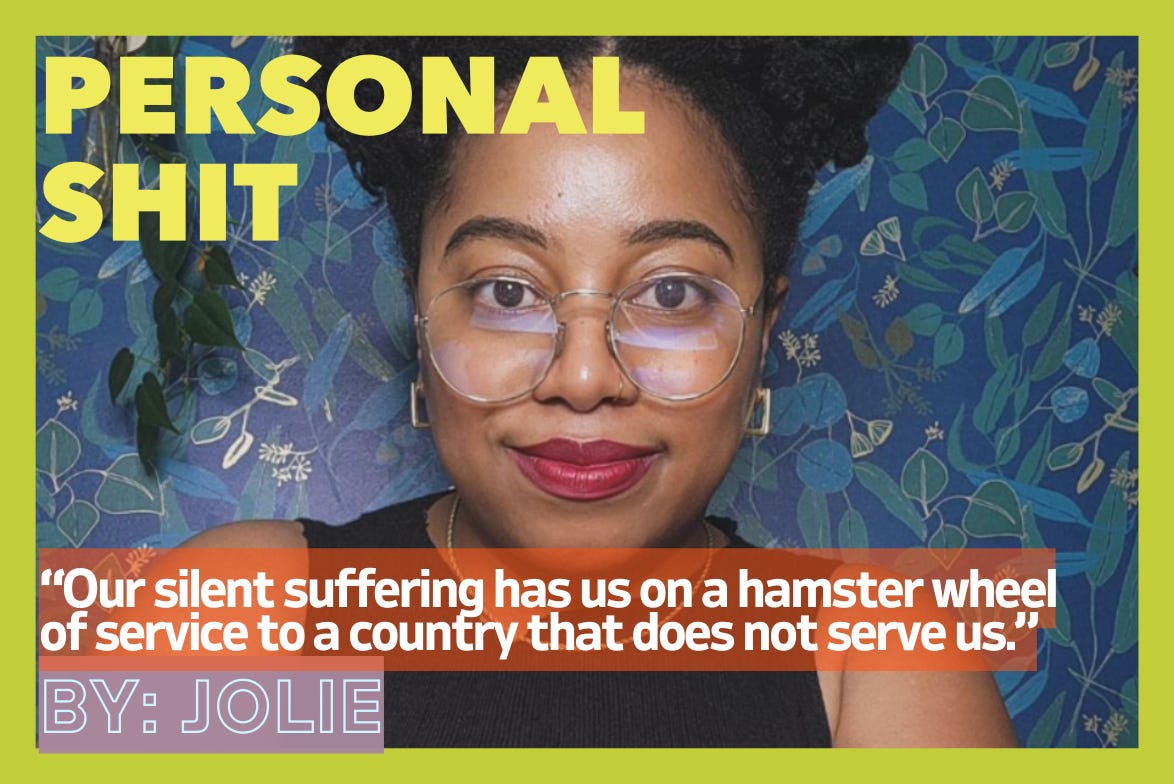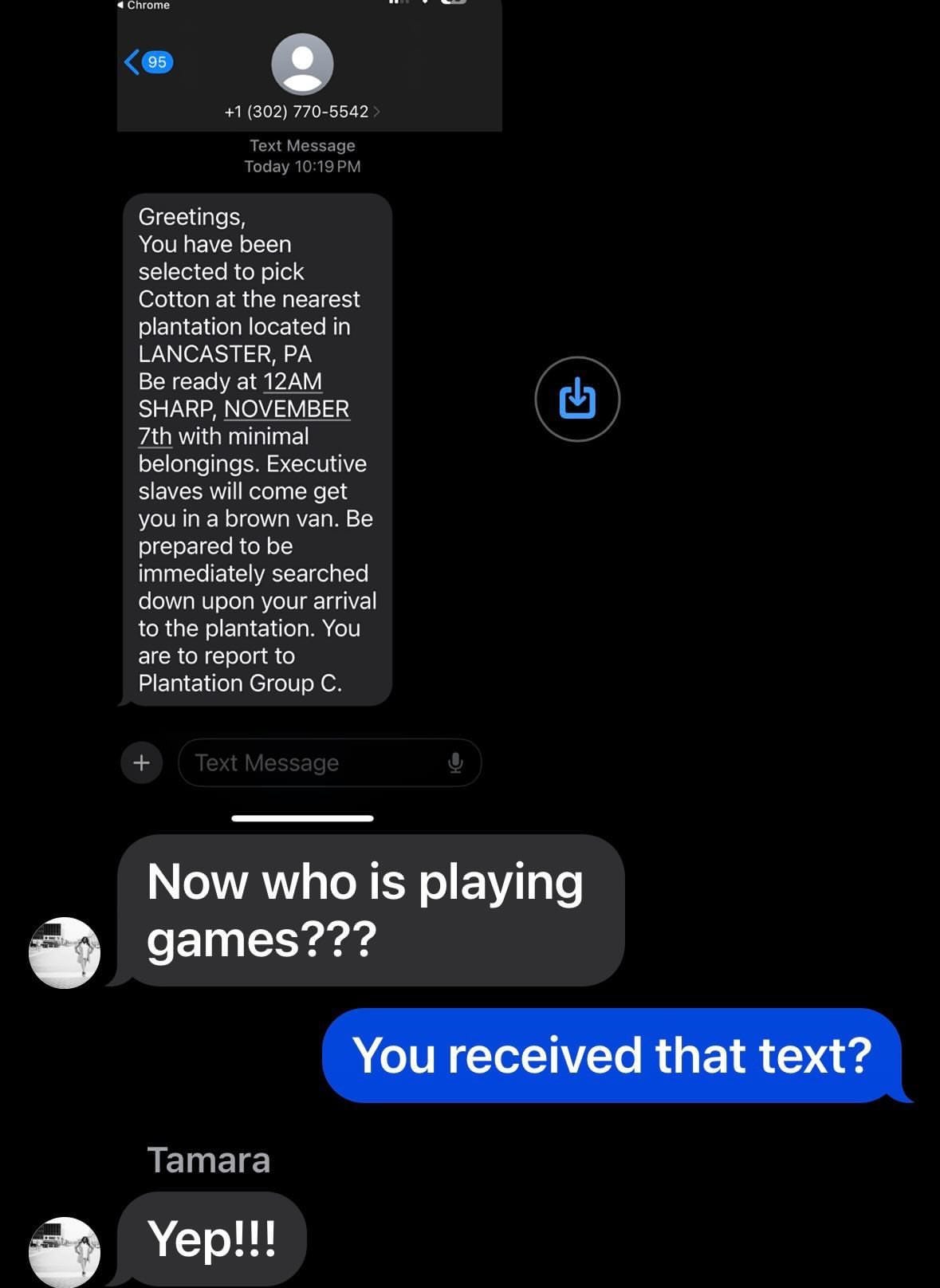Today, I feel angry.
Three days after the 2024 presidential election, I’m angry I have to endure the chaos, frustration, and daily threat of violence under another Trump administration. I’m angry that so many (like, seriously, how is it so many?) chose to overlook Donald Trump’s blatant bigotry, misogyny, incompetence, and utter contempt for the most marginalized people in this country and voted for him anyway. I’m angry that the most qualified candidate in the history of the United States, a Black woman, still was relegated to the back of the line in favor of a white man.
I’m angry at those who voted for him and mad at you if you’re reading this and thinking, “Now isn’t the time for anger, and we shouldn’t be ruining our relationships over a difference of opinion. Now is the time to come together in kindness and civility.”
Fuck that.
Anger is a rare sensation for me. I am not quick to feel furious or righteous indignation. I am a soft, sensitive, cinnamon apple of a person who is more likely to cry in the face of conflict and confrontation rather than buck up. I’m definitely more Martin than Malcolm if you catch my drift.
And that’s not surprising. As a Black woman existing in America, quelling my reasonable rage has kept me safe. Disregarding my own emotions has kept me employed and in relationships. My strategic silence has allowed me to walk away from interactions with police officers or men who catcall me on the street. There are so many things in daily life that make me angry, but Black women learn pretty early on that if we want to be taken seriously—and if we want to stay alive—we must avoid the Angry Black Woman™ stereotype at all costs.
Instead, we embrace the Strong Black Woman™ stereotype that says that we can do and endure anything, no matter how stressful, rage-inducing, degrading, or in complete opposition to our health and humanity (like a Trump presidency).
But that silent suffering has us on a hamster wheel of service to a country that does not serve us. That silence has made us chronically stressed and unwell with diseases that stem directly from stifling our emotions. We’ve been quietly fuming in toxic workplaces and abusive relationships. And all the while we’re doing our best, working hard, patiently organizing, and being exceptional, only to be let down, hurt, and disappointed.
People tell us that being angry doesn’t solve anything.
Anger actually solves a lot of problems.
Anger and the full expression of our emotions are forces that have historically propelled us forward toward justice. Mamie Till Mobley was very upset (and that’s such an understatement!) when she saw the lynched body of her 14-year-old son, Emmett. And she made sure the rest of us would feel the rage and anguish she felt when she left his casket open for all the world to see how racism had mutilated a child’s body and a people’s future. Fannie Lou Hamer was “sick and tired of being sick and tired,” so she chronicled the acts of brutality that she and other Black people in the South endured while trying to exercise their right to vote (violence that persists today but there’s nothing to be angry about, right?). When Black women were tired of seeing our people die at the hands of police, or they were tired of sexual violence against our bodies going ignored, or they were sick of being excluded from conversations about feminism, we created the Black Lives Matter Movement, the Me Too Movement, and Intersectionality, respectively.
When we get angry, the world changes.
And make no mistake, the election of Donald J. Trump to a second term is something to get angry about. It should fill us with rage that a man who incites riots, who proudly and loudly spreads hateful rhetoric toward anyone who isn’t rich and white, and whose supporters have made no secret about their plans to overhaul the checks and balances of government and introduce a nearly fascist regime has once again been the leader of the free world. I am outraged that so many people allowed this to happen again.
Even now I have some feelings of guilt. I think some of us have a hard-wired desire to be liked and approved of because that’s how we’ve survived for so long. We instinctually bring our opposition to our bosom and say “It’s going to be okay, no one is mad at you, we all respect your choices as a human being, we’ll take care of it like we always do.”
But I’m tired. I’m tired of always having to be the bigger person. I’m tired of going high when they go low. Black women are tired of carrying this country’s humanity on our backs and not even having the right to turn around and say the rest of y’all aren’t doing enough, have never done enough, and have consistently done things to make our lives worse.
So no, there’s no room in my bosom for you. I am mad at you. I’m mad if you can’t see all the reasons why now is absolutely the right time to be angry.
Eventually, my anger will pass. I will revert to my cinnamon apple self and embrace my softness as my superpower—but not so I can make white people and Trump supporters feel better. Rather, it’s so I can understand, advocate for, and protect the communities that will be most harmed under the new world order that white people and Trump supporters have ushered in.
Because while I am not quick to anger on my behalf, if you hurt someone I love all bets are off, baby! We're fighting. I'm yelling. I'm challenging authority. I'm challenging the status quo. I’m calling you out. I’m telling you about yourself. Fuck civility, fuck going along to get along, fuck suffering in silence.
You mess with my people, now you gotta deal with me angry. And you won’t like me when I’m angry.
Jolie A. Doggett is a writer and editor based in Raleigh, North Carolina. She’s previously been on staff at ESSENCE Magazine, HuffPost, Medium.com, Netflix, and more publications writing and editing personal essays, opinion pieces, and news that covers the intersections of politics and Black culture. She produces a podcast and newsletter called Finding The Right Words all about journaling for mental wellness and self-expression. When she’s not writing, you can find her dancing at her local pole studio or home watching cartoons and reading historical fiction.







Thank you, Jolie, for letting us run this important piece.
Jolie, your voice has always been pure and true and I so admire that about you. Thank you for sharing this story with us.